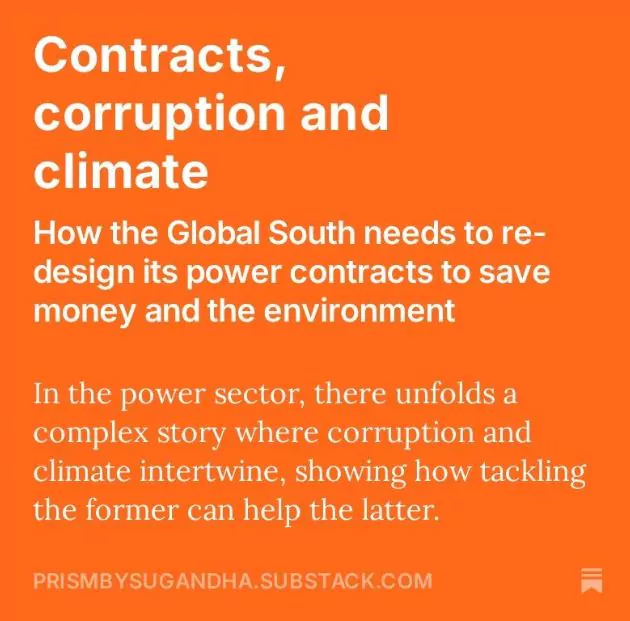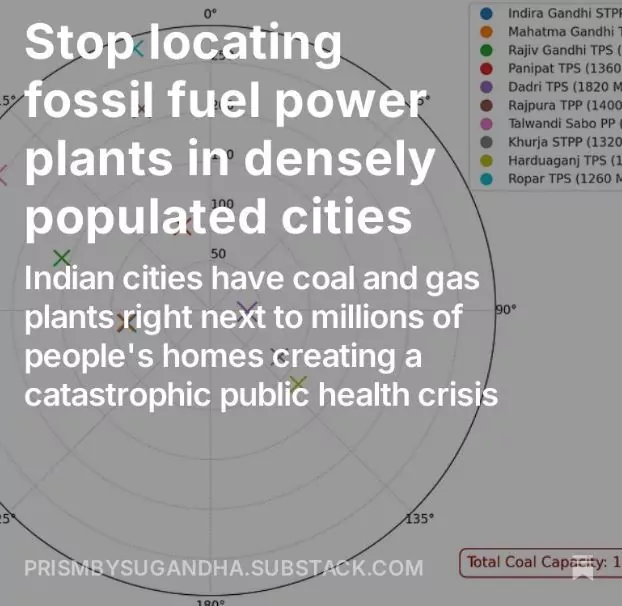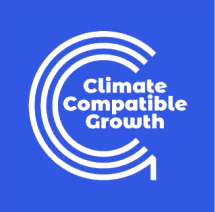Sugandha Srivastav is an Environmental Economist based at the Smith School of Enterprise and the Environment – University of Oxford. Here she discusses her work investigating some of the less commonly researched aspects of climate change and the way they impact ordinary people and hamper positive change.

You recently started publishing a series of commentaries on corruption and other issues related to barriers to climate change mitigation. Tell us where that idea came from please.
In most developing countries, electricity is procured through long-term contracts. We realised that these power contracts are not disclosed even though they’re using public money – so every citizen of every developing country is paying for this power, but they don’t know what the terms and conditions are. This presents a major challenge for affordability. Without transparent and competitive procurement for energy, there is a risk that citizens end up paying much more than they should. Given the importance of electricity for development, we felt that this was a top priority topic.
Who does not have access to information? Are you talking about the person on the street or the academic community?
It is both. While some privileged people in government probably do have access to this information, it is generally behind closed doors and not publicly shared at all. We wanted to get data on power purchase agreements to explore whether these contracts reflect fair value. With renewable energy experiencing staggering cost declines, we were curious whether citizens are stuck into paying for more expensive fossil fuel generation that is backed by 30-year contracts. If it is the case that long-term power purchase agreements are blocking a pathway to cheaper energy, then there could be a need to re-negotiate these contracts or swap the underlying technology to make way for something that will better serve the goal of affordability.
I understand.
We started looking across countries to see where we could find any information on power contracts.
We realised that for most countries we really couldn’t find anything, but for Pakistan, we discovered that at least the raw contract files were on the electricity regulator’s website. This was a big win, and I want to underscore how rare this is.
This meant that, if we spent a lot of time, we could put together a systematic database. Five of us went over all of these contracts and their amendments – 6,205 documents in total. It took us a whole year because they were long and complex agreements.
We realised that this complexity is what hides how expensive these contracts are. You not only have the price of electricity, but you also have details around cost of equity, dollar indexation, fuel cost reimbursements, etc. If you factor all of these variables, you get a picture of how much electricity actually costs in the developing world. As a hint: it’s not cheap.
As far as we know, this database of power purchase agreements is the first one in the world to be created. Now we are at the stage where we can finally start to get interesting insights which we’re publishing whenever we can.

What examples of corruption are emerging from your analysis?
One example is that the textile industry in Pakistan has been asking for electricity subsidies citing the high price of power but in fact, owns a lot of power plants, and therefore, benefits from the same high price of power. This felt like a case of double-dipping.
We also see power producers inflating the cost of fuel. Since the contracts are cost-plus, independent power producers can get reimbursed for fuel costs. Yet, this creates an incentive to artificially inflate fuel costs to secure greater returns. In many cases, we saw that power plants were using coal with lower calorific values and at lower prices than what they claimed they were using. This meant ordinary citizens were paying more for electricity than they should have been. This risk is specific to technologies that require fuel inputs. By contrast, if the “fuel” is free (e.g. solar or wind), then this avenue for corruption suddenly disappears.
These revelations were shocking and it’s important that people know about them because we could be talking about one thing when actually, the real story – and the real issue that needs addressing first – is corruption.
We’re going to keep pushing on that, but more broadly, what I want to do, is create a global energy transition lab which looks at these structural barriers to the energy transition in the Global South. The contract story is one of them, and it’s a really big one. But you also have others like attracting finance into renewables, and the barriers created by institutional structures. The lab would look at these institutional factors, which I think are relatively less explored and the idea is very much in line with CCG’s ethos of creating new datasets and sharing public goods.
In other countries how much documentation is available?
For example, in Ghana they don’t tell you the details of power contracts at all. We just know the number of contracts, but nothing more meaningful than that. In these cases, you’ve reached a dead end. In other countries you literally know nothing. Not even the number of contracts.
Our hope with the Pakistan test case was to show how this can be a problem, how this affects development, value for money and climate mitigation. We want to use this as a case study to inspire people in different countries to undertake their own transparency efforts and we have already had some initial success with a Nepalese scholar telling us that they are going to file a right to information to know about their own country’s power contracts.
Our aim was to use this test case to highlight the issues and start a movement to inspire others to ask these questions in their own countries. Everyone deserves affordable electricity, but that process starts with transparency.

What are the other themes you’re going to tackle from this work?
Our main focus, so far, has been the affordability of electricity. Most of these contracts were solicited bilaterally and that makes us worried about rent-seeking. Moving to transparent and competitive procurement is a key policy recommendation from this work.
Another theme we will explore is exposure to risk. Developing countries often offer investors insulation against risk to attract investment. For example, a lot of the contracts are in foreign currency to shield foreign investors from local currency depreciation. While this seems alright on paper, in practice, it means that when the local currency depreciates, electricity can become two or three times more expensive in real terms. This has led to crippling levels of debt and volatility. Here, our recommendation is more nuanced: can the risk be better shared? Is there a way to bring in the investment without creating a future debt crisis?
Going back to the corruption theme, we have also found instances in which investors have asked for foreign currency indexation claiming that they are importing materials when in reality, it has been discovered that everything was locally sourced. Again, the upshot of this is that ordinary citizens and businesses end up paying much more for electricity than the fair value.
What do you do about certain places where bribery and corruption are endemic? When your work clashes with that situation, what comes out of that?
The nice thing about our work is that it’s addressing a situation in which the winners are a few elite people and the losers are everyone else. We should have a broad base of support.
It’s a very common story, isn’t it, unfortunately?
Exactly, it’s a really common story. Lawyers are concerned about this, and ultimately, it is the common man, woman or child on the street who can’t afford electricity anymore because certain vested interests are gaining at their expense. That’s where I think the data comes in because we don’t want to make this political. We want to say: ‘we looked at the data and this is what we found, and we can’t justify these prices; you have much cheaper electricity out there.’ I think that’s the power of data because it is neutral, and it shows that the current arrangements are very hard to justify economically.
So, you’re saying ‘we’ve shared the facts and analysed them, but we’re not jumping to any conclusions about what you, the people, should do about it. That’s up to you’
Exactly, exactly. That is the ethos of this project and that’s why we were happy that someone from Nepal said that they wanted to do this in their own country. Remember, there are two dimensions here. First, we weed out the corruption. Second, we probably want better contract designs, ones that share risk more equitably.
I suppose your biggest contribution here is getting those contracts and that information out there in the first place and drawing the conclusion that, for the good of the country, there are cheaper ways of getting electricity.
Yes, exactly. Look – every developing country wants to attract investment in energy. Power purchase agreements are good way to do that. But, what we find is that the story is not as simple as people originally thought. The power contracts of the 1990s and 2000s were poorly written, uncompetitively sourced, and have resulted in super-normal profits for some while resulting in expensive electricity for the masses. The system is broken but we did not know that because no one had the data. That’s our main contribution – we can systematically show that something went wrong.
And what would you like to happen with the work next?
There are a couple of things here. If we have dispassionate data analysis, it can be used by lawyers in the country if they want to litigate these things, especially in cases where we find explicit instances of fraud or corruption (like when power producing firms inflate their coal costs). Often, lawyers do pick up studies and use them as evidence in court. So that is one pathway of change. The other thing I want to do is make this a bit more popular and reach the masses. I am experimenting with much more popular outlets.
I’ve started posting my thoughts on Substack as a testing ground for ideas about the Global South’s energy transition, which not only looks at this story on corruption, but also highlights some very positive instances of things that have gone well and are shining examples of how the transition can happen in developing countries.
I do want this to have a much broader impact and part of that is recognising that, as academics, we have to step beyond our journals.
This is why CCG is so great because it’s helping us move from a very Western-centric narrative on the energy transition, to one that focusses on the Global South, where there are so many opportunities as well as challenges. I’m looking to bring that to the public in a tangible way.
What kind of support do you need to help you realise your vision?
Well, at the moment, I’m trying to fundraise to get a team around me and start a Global South Energy Transition Lab. With the Pakistan work, I have two co-authors, one is Faraz Hayat, the other is Tim Doberman. But to take this forward in a serious and systematic way, we need more of everything: more co-authors, more research assistants, more datasets, more computing power, more blogposts, more models, more collaborations. Ultimately, the world has much more to gain from research that looks at countries that have been barely studied rather than those that are already heavily researched. This way, we not only drive impact but also have a more representative academic community.
You’re doing truly inspiring work, Sugandha. Thank you for sharing it with us.
